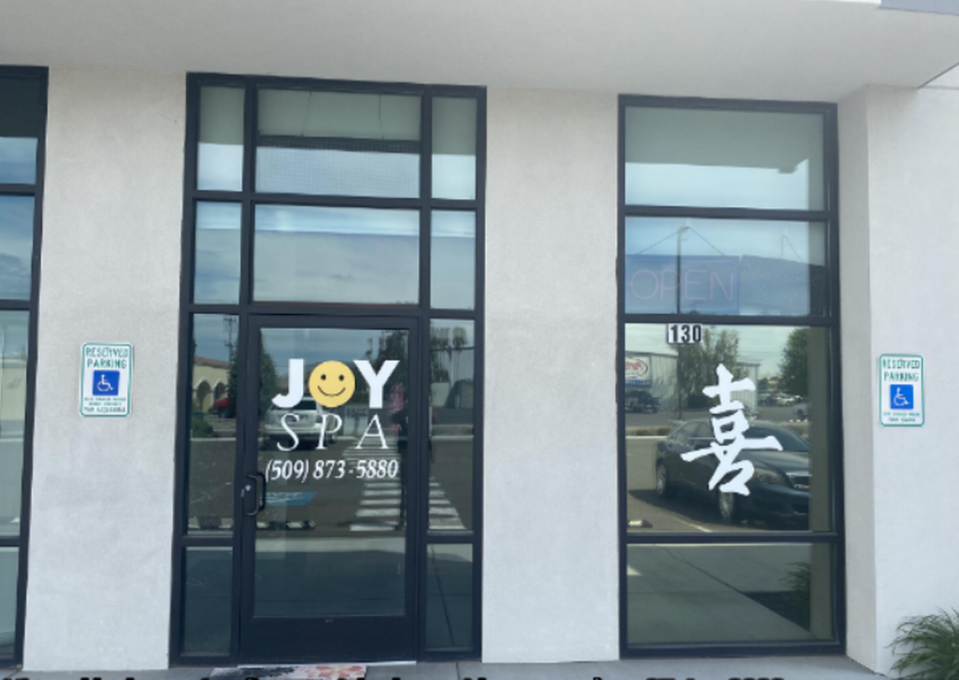One of Tri-Cities considers law to drive out illicit massage parlors and end sex for sale
Most women working at six Kennewick massage shops recently shut down by police investigations did not know they lived in the Tri-Cities after being flown here.
One had arrived in the United States within the last month and said she had a $10,000 debt to pay off. Others had IDs from New York, Texas and California.
Only one could speak English.
They denied they were living at the massage and reflexology businesses where they worked, but suitcases and food on site and a sink converted to a makeshift shower told a different story.
At four of the businesses raided in May investigators found evidence they believe indicated human trafficking of the women.
That’s the account Kennewick Assistant Attorney Laurencio Sanguino gave the Kennewick City Council this week as he proposed a new city ordinance to make it easier to shut down more illicit massage therapy and reflexology businesses and drive them from the city.
Richland, Pasco and West Richland may consider similar changes so that illegitimate businesses don’t just move elsewhere in the Tri-Cities when Kennewick cracks down, he said.
The Tri-Cities ranks third in the nation as the most important region for massage businesses offering prostitution services in the United States, Sanguino said.
It has 31 possible businesses, 17 of them in Kennewick, he said.
In the May raid and shutdown of six businesses, those with the most aggressive practices and most complaints were targeted. But law enforcement believes there are more.

The Kennewick City Council is expected to consider adopting the ordinance at its June 20 meeting.
The proposed ordinance is designed to be an efficient way to shut the businesses down, by giving police more oversight of them, making more than a single initial offense a gross misdemeanor with hefty fines and making owners ineligible to apply for a new city license to reopen.
Action could be taken under the proposed change at the city level rather than the more long-term actions of referring cases to federal prosecutors for investigation of human trafficking or county prosecutors for money laundering investigations.
“The goal is to close down the businesses,” Sanguino said.
Prosecution can be difficult if the cooperation of the women providing services is required, he said.
All of the women working at the six businesses recently shut down denied they were prohibited from leaving, he said.
Proposed new massage regulations
New regulations would include limiting hours to no later than 8 p.m.
The businesses shut down were open as late as 10:30 p.m., seven days a week, but basically operated around the clock since many of the women appeared to live on the premises and phone numbers were posted so people could call or text for an appointment at any time, Sanguino said.

Lights would be required to be continuously on in the common areas and in all rooms where massage or reflexology services are offered, under the proposed ordinance.
“The lighting requirement seems insignificant but its important because a lot of these businesses obviously don’t operate with the lights on,” Sanguino said.
The businesses must prominently displays a list of all services offered and costs.
Massage therapists or reflexologists must be at least 18 and each must be licensed or certified by the Washington state Department of Health, with their licenses or certifications displayed near the business entrance.
Each employee must carry identification so they can show the information to police or state or health district officials.
Registered business owners would be liable for violations.
The first violation could result in a maximum sentence of 90 days in jail and a $1,000 fine. Each subsequent violation, including those that happen at the same time as the first violation, could be punished with a maximum sentence of up to 364 days in jail and a $5,000 fine.
In addition the person holding the city business license would have to give up their Kennewick-issued massage or reflexology business licenses if they are found in District Court to have violated the city code, and they could not reapply.
Kennewick police could inspect the common area during business hours to ensure that the new regulations are being followed.
Results of Kennewick raid
In the six massage businesses recently shut down in Kennewick, underage workers was not an issue, Sanguino said.
The women offering massages were in their late 30s to late 50s, although at least one advertised with stock photos of much younger women and teens, saying, “Cute, young girls will have you relaxed and show you JOY.”
Sanguino said employing more mature women likely was done to divert suspicion.
But had the new ordinance been in place when the six businesses were recently shut down, the owners could have been charged with gross misdemeanors.
Three businesses had the same massage therapy license posted, which was for a woman who was not at any of the businesses when they were closed, Sanguino said.
All were purportedly owned by women, but others were involved, Sanguino said. Those who came to hearings to revoke their business licenses were accompanied by men.
All six of the businesses allowed women who did not have massage therapy licenses to provide services, five had unlicensed practitioners working at the businesses and four offered sexual services, Sanguino said.
The nonprofit Mirror Ministries met with the women who were working at the closed businesses to offer then help and some accepted services, including a place to live and others just wanted to leave.

